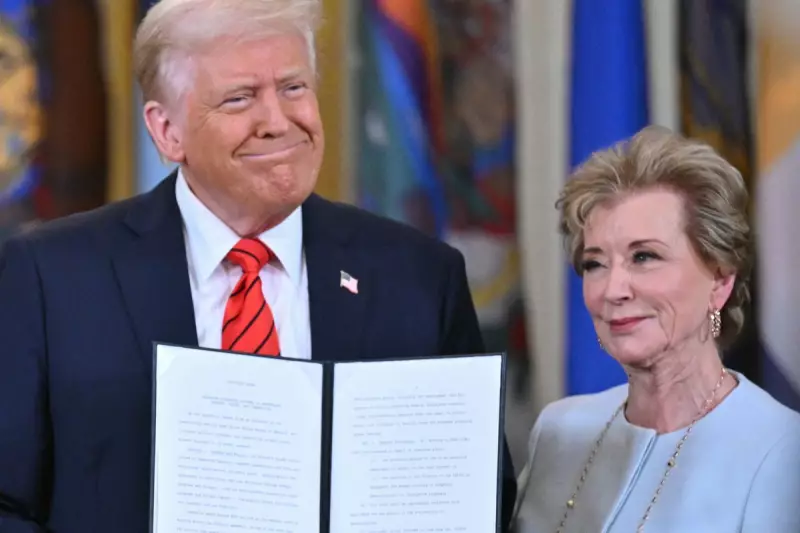
The Trump administration has ignited a firestorm of protest by formally excluding nursing from its definition of a 'professional degree,' a move that nursing bodies warn will cripple the future workforce and 'threatens the very foundation of patient care.'
What the Bill Changes for Student Nurses
The controversial decision is a key component of President Donald Trump's 'One Big Beautiful Bill Act,' which was signed into law earlier this year. Overseen by Education Secretary Linda McMahon, the legislation implements sweeping cuts to student loans. It eliminates Grad PLUS loans, commonly used for graduate school, and places a strict cap on borrowing.
Under the new rules, only students in programmes classified as 'professional degrees' can access a higher loan limit of $200,000. All other graduate students, including those in nursing, are now capped at $100,000. By excluding nursing from the professional category, the Department of Education effectively prices many aspiring nurses out of their advanced studies.
Outcry from the Nursing Profession
Leading nursing organisations have reacted with alarm. Dr Jennifer Mensik Kennedy, president of the American Nursing Association, stated, "Nursing is the backbone of the healthcare structure in the United States. We are short tens of thousands of nurses already. This is going to stop nurses from going to school to be teachers for other nurses."
The American Association of Colleges of Nursing is demanding a reversal, arguing the decision "disregards decades of progress toward parity across the health professions." They highlighted the contradiction in the Department's own policy, which typically recognises professional programmes as those leading to licensure and direct practice.
Mary Turner, RN, president of National Nurses United, told The Independent that the administration's priorities were "at odds with the needs of nurses and patients." She accused the government of "making education harder to access" while simultaneously providing more than $1.5 trillion in tax cuts for the top 5 percent of Americans, according to the Center for American Progress.
Government Response and Wider Impact
The Department of Education dismissed the concerns as "fake news," with its press secretary for higher education, Ellen Keast, accusing institutions of having an "unlimited tuition ride on the taxpayer dime." She defended the change, stating it aligns with a "consistent definition of what constitutes a professional degree for decades."
The financial impact is significant. According to NurseJournal, the total cost for a four-year Bachelor of Science in Nursing can range from $89,560 to $211,390. The new loan cap makes this increasingly unaffordable.
Nursing is not alone. Other fields excluded from the 'professional' classification include physician assistants, physical therapists, social workers, and accountants. Programmes that retained the status are medicine, law, dentistry, and theology, prompting critics like Senate candidate Amy McGrath to ask on X, "Can someone explain how a theologian is considered more 'professional' than a nurse practitioner?" She suggested the move disproportionately targets fields dominated by women.
The new measures are scheduled to be implemented beginning July 1, 2026.





